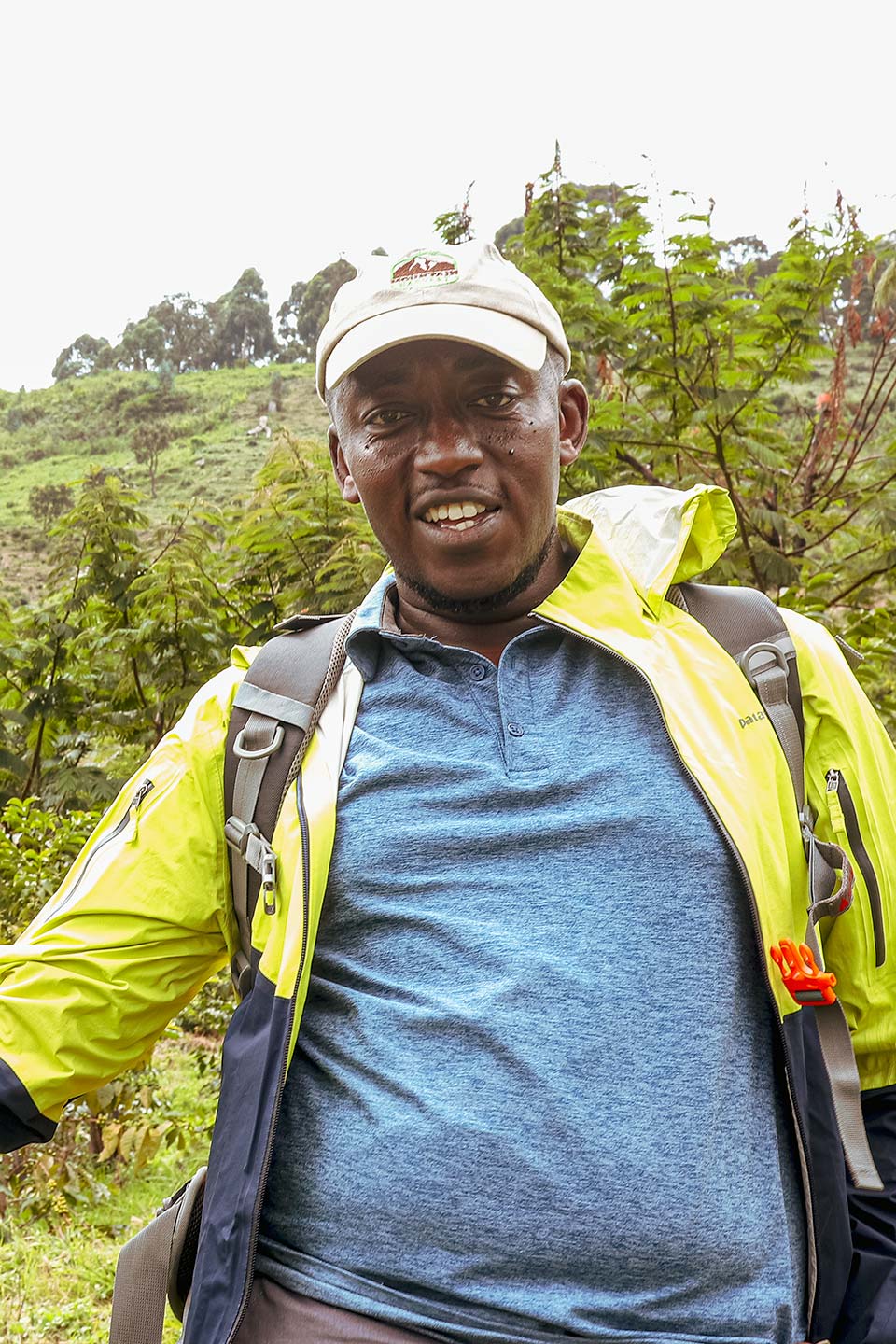
Overturning Stereotype around Ugandan Coffee
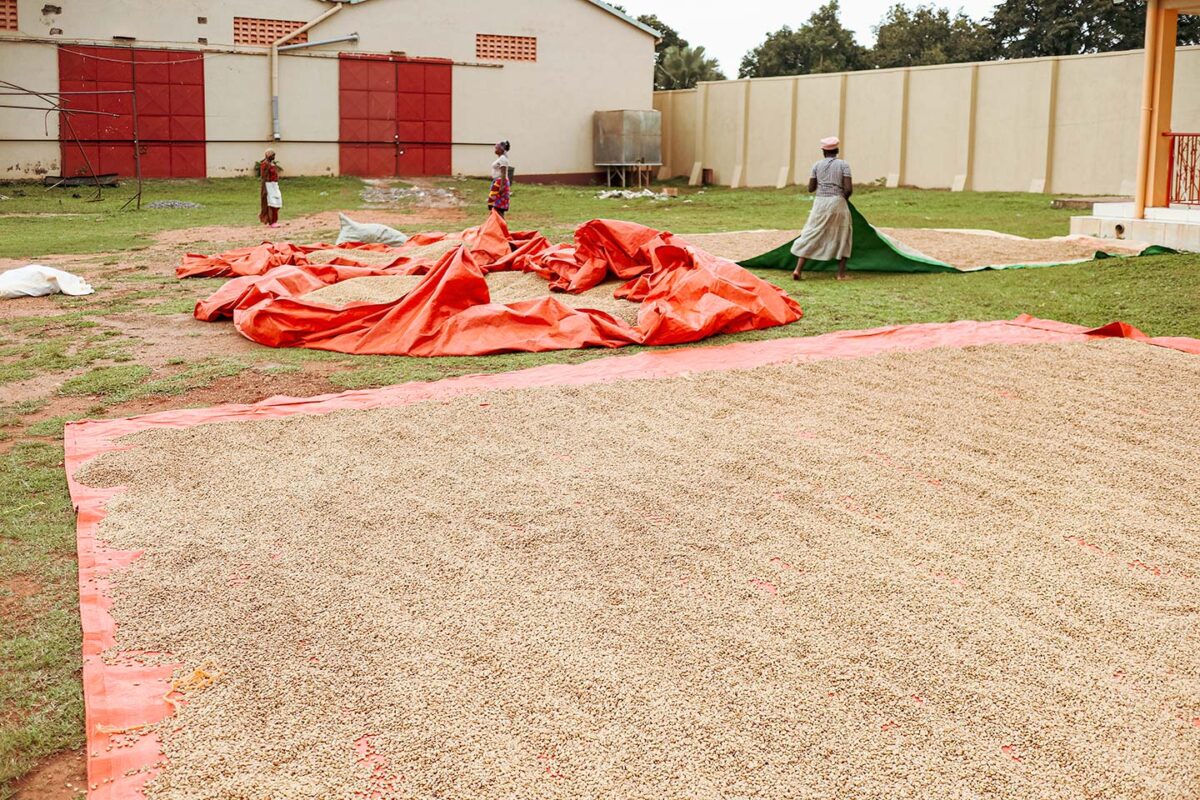
Mountain Harvest was established in eastern Uganda in 2017 with a goal of transforming how people view Ugandan coffee. The country has long been burdened by a negative reputation surrounding its coffee, but this coffee exporter is changing that through their focus on producing consistently high-quality specialty coffee. To achieve this, they have trained local coffee professionals, recruited talent from abroad, and standardized operating procedures. Their efforts have already yielded results, including four consecutive wins in their national green coffee quality competition. Kenneth Barigye, the founder, aims to take it even further by selling Mountain Harvest coffee at more than double the market price.
“Mountain Harvest isn’t just an exporter, but a team of individuals trying to change the status-quo of Uganda,” says Kenneth, who also represents his nation at the Africa Fine Coffee Association. Along with Nico Herr, Chief Operations Officer and quality assurance manager originally from the United States, they also work to cultivate future leaders. Now Mountain Harvest partners with 36 groups consisting of around 800 smallholder farmers. We spoke to Kenneth and Nico to find out more about their goals.
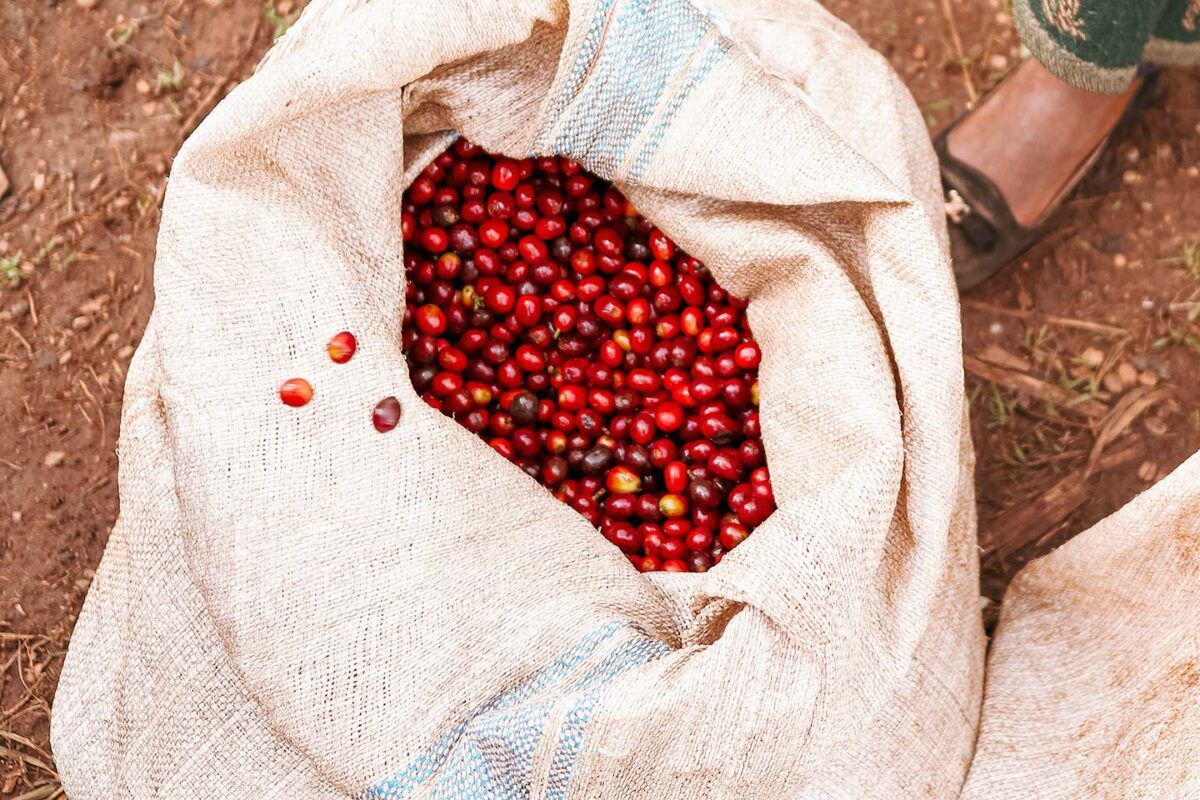
Overcoming stigma
Uganda is Africa’s second largest coffee producer, only behind Ethiopia. One in four Ugandans earn a living from coffee, and it contributes approximately 20% of Uganda’s export value. The Uganda Coffee Development Authority reported that in the year from August 2021 to July 2022, coffee exports garnered a record 870 million dollars, a 1.5-fold increase year-on-year. Despite these positive developments, Kenneth believes Ugandan coffee still has a negative image attached to it.
“People tend to see Uganda as a low-quality origin because of how it’s presented. I’ve had an experience where an exporter questioned the origin of our sample, just looking at how it was packaged. I believe the issue stems from little investment in branding from the government, businesses, or individual producers.”
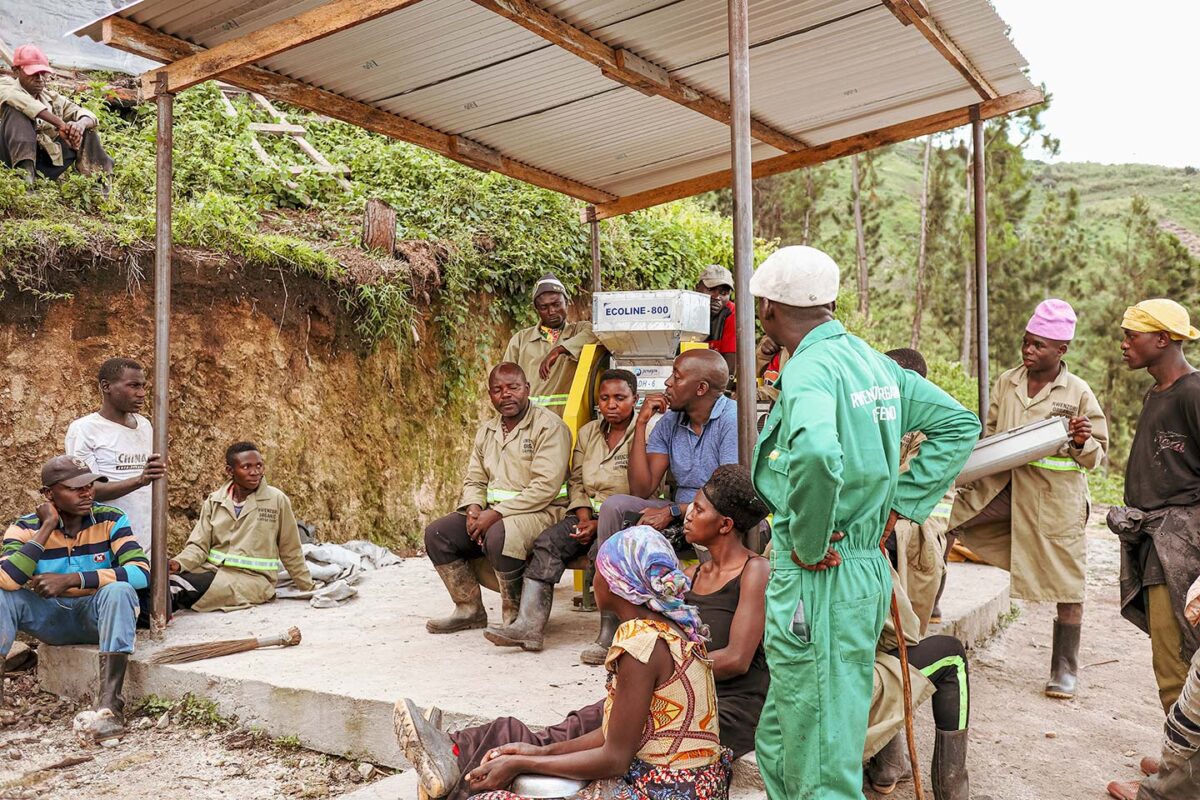
In fact, many young people in Uganda have given up coffee farming and moved to cities in search of more profitable jobs, such as motorcycle taxi drivers. However, improving the quality of coffee is the only way for the country to overcome its negative perception. Mountain Harvest recognized the potential of Mt. Elgon, located in the nation’s east, for its fertile volcanic soil and abundant sunlight and rainfall. Since day one, Kenneth has prioritized quality, believing that if he could secure a good price for his coffee, he could use the revenue to provide farmers with the essential services they need.
But the reality was more complicated. For starters, producing coffee cost twice as much as its selling price if the farmer is to add value at the farm. This meant that farmers lost more money the more they produced parchment. Previous experiences added to the complexity, as farmers had witnessed NGOs urging them to produce high-quality coffee parchment, only to abandon them without payment. Naturally, farmers were skeptical when Kenneth approached them.
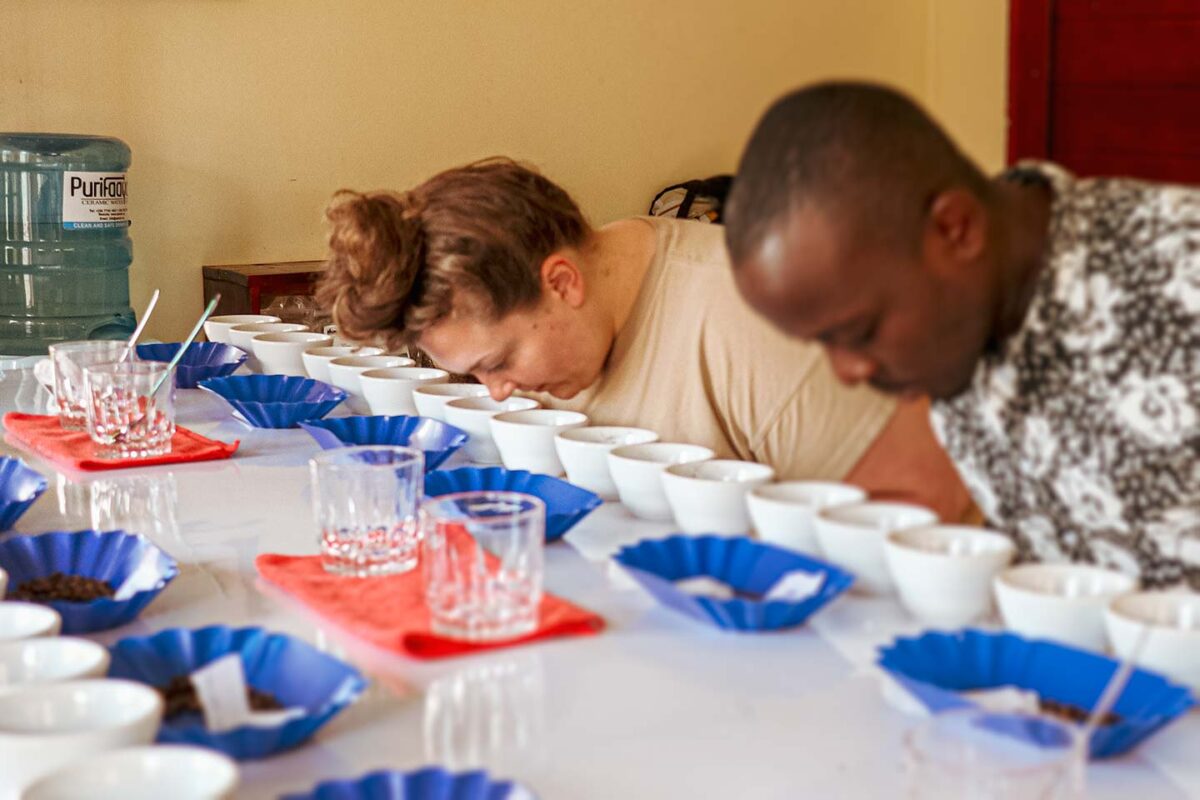
To earn the trust of the farmers, Kenneth realized he needed to build a professional team and bring in more talent and experts in the field. He recruited specialists from overseas, including from the United States, Brazil and Colombia, to train local talent and ensure that the highest standards were being met at every level. One of these experts was Nico, who had more than 10 years of experience running coffee-based businesses with a focus on sustainability and excellence. She joined Mountain Harvest to help with quality control and marketing.
Nico: “My role is to standardize every little process from the seed to the dry mill. Standardization allows anyone to have a higher sense of professionalism. We focus on the mindset to challenge the status quo and imagine a standard that’s not there yet.
Realistically, fully digitizing our operations can be difficult on the farms, where sometimes pen and paper are the best technology available. But we are working towards automated data analysis to ensure quality consistency across different years and different regions. This requires building data systems that can help replicate the same level of quality consistently.”

Thanks to their efforts, Mountain Harvest has already seen success. Their coffee has won a national competition four years in a row, and the price of their product has increased significantly. In 2022, they sold their lowest kilogram of green for 7.48 dollars, up from 2.86 dollars five years ago. This allowed them to pay farmers 3.2 dollars for a kilogram of parchment – more than double the price of 1.5 dollars per kilogram of parchment that they were paying farmers five years ago.
Kenneth: “My nightmare, or something that worries me a lot, is to wake up to find that no buyer is willing to pay a high price anymore, despite the farmers’ efforts. It is our responsibility to get more buyers to pay a price that matches the quality of their coffee and a price that is higher than the farmers’ cost of production.”

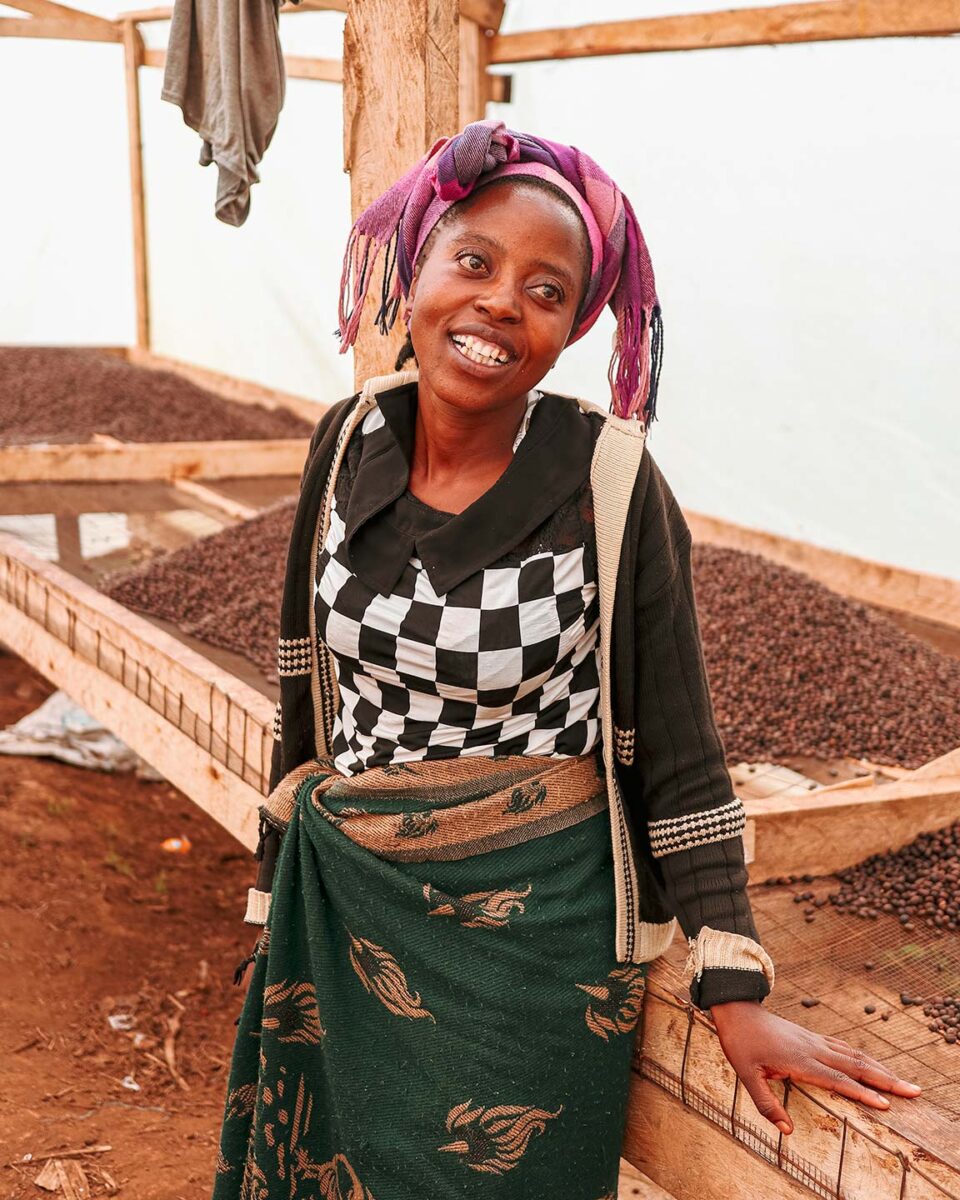
Providing tangible support
Mountain Harvest’s practical assistance is a key reason why farmers choose to work with them. For instance, the company provides smallholders with micro loans without the need for collateral, which is especially beneficial because many farmers have no access to financial services due to their lack of trust from banks, as well as their lack of land ownership and bank accounts.
In addition, Mountain Harvest stands out by paying farmers upon receiving their coffee, a practice that helps improve their cash flow. In contrast, farmers in other areas usually deliver coffee and finally come back after a three-day, or sometimes weeks-long wait for payment. Nico says that it’s not uncommon within the coffee value chain for coffee producers to go unpaid until the exporters are paid. To Mountain Harvest, this is unacceptable.
Mountain Harvest provides comprehensive support to farmers beyond just financial aid. The company has launched an educational program that focuses on financial literacy, enabling farmers to maximize their profits and further understand their own production year to year. Traditionally, farmers may use their income on immediate expenses like upgrading their roofs. With Mountain Harvest, they have experts available to them to understand areas of investment that are key for their success, such as organic fertilizers or drying equipment. This approach helps farmers to increase their revenue in the long run.
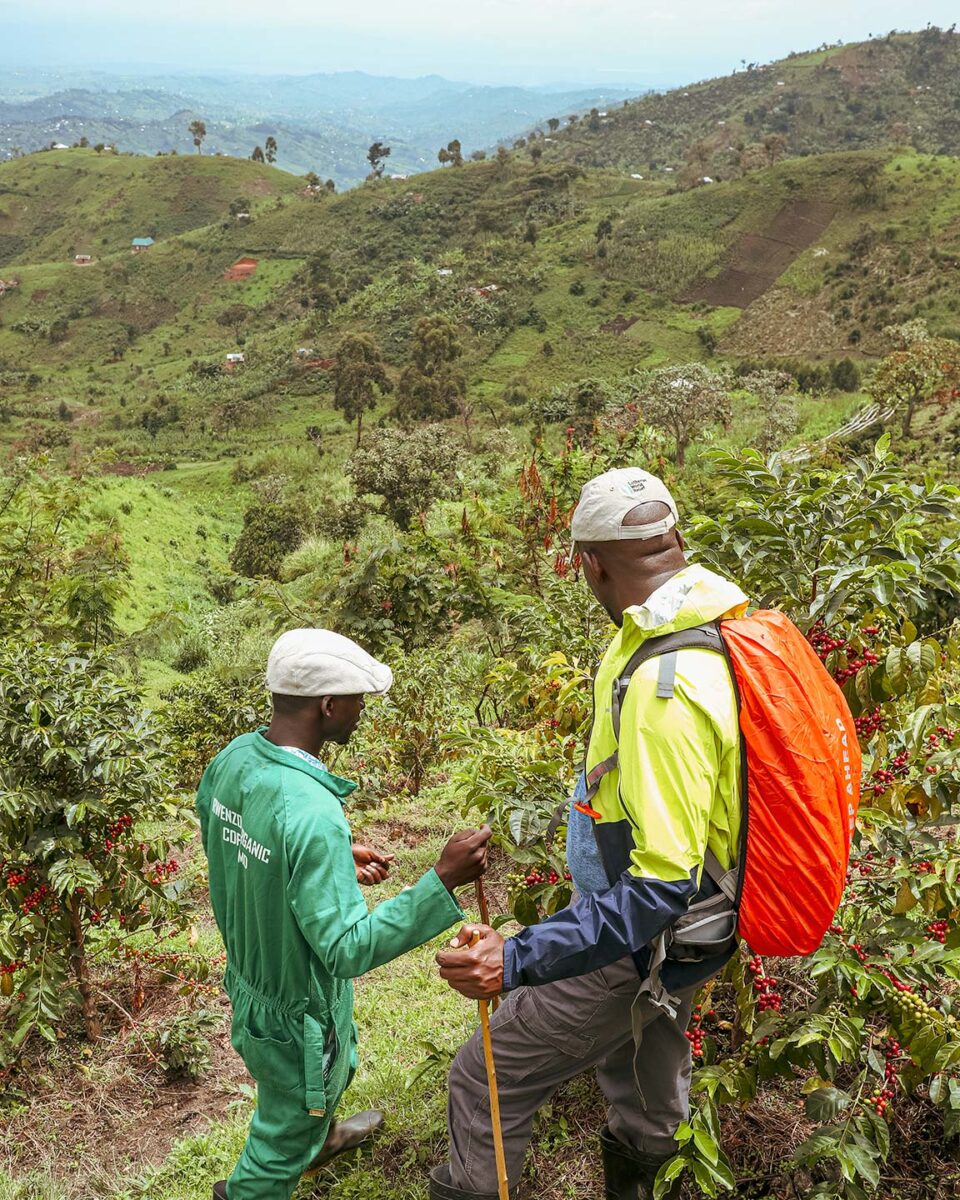
In addition, Mountain Harvest offers macadamia nuts, avocado, legumes, and other crops to provide farmers with income outside of the coffee harvest season, as well as rabbit raising and beekeeping for both extra income and household consumption. These programs not only provide economic benefits but also contribute to environmental sustainability and food security. For example, macadamia trees offer shade for coffee trees, legumes help fix nitrogen in the soil, and rabbit urine and droppings can be used as fertilizer. Often in this field, people point to regenerative agriculture, whereas Mountain Harvest points to regenerative business.
To uplift the coffee industry, Mountain Harvest is also taking steps to train coffee professionals. Every year, they accept 20 students from local universities and provide them with six months of paid training. If they excel in the program, the company offers them an employment opportunity or recommends them to other companies.
“There is no specialized coffee school in Uganda. We can’t just hire someone who is already producing quality coffee. So we have to be the school to develop people from scratch.”
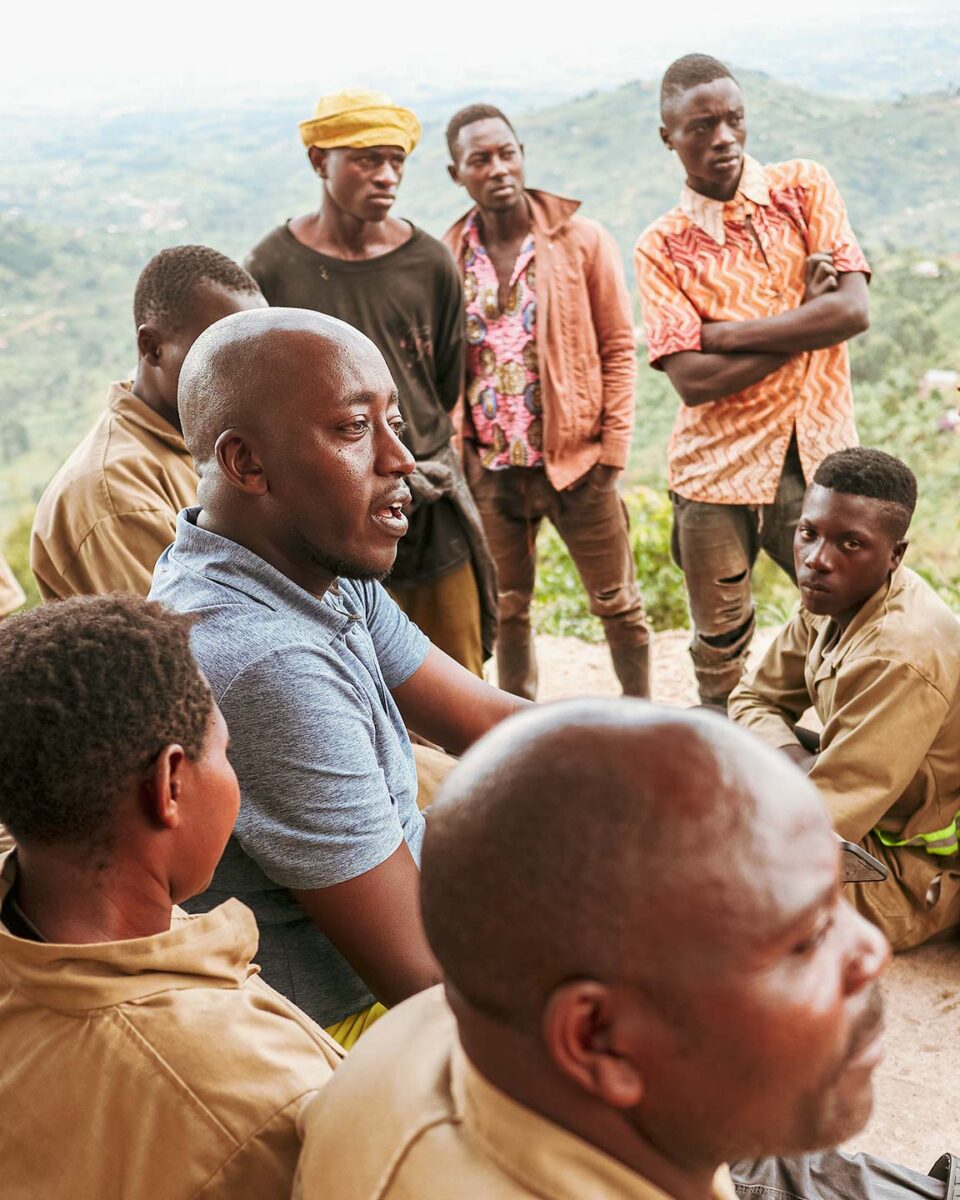
Giving back to community for prosperity
Kenneth’s commitment to community is at the heart of Mountain Harvest’s philosophy, which centers on quality, good pricing, and excellent service. This ethos reflects Kenneth’s own experience as a child of a refugee mother who found a home in Uganda in the 1950’s, thanks to the kindness of local residents. In a foreign nation where there was no one to turn to, it was the local community that welcomed them with warm embrace.
“My mother made many ‘relatives’ in the community, even if they were not related by blood. Everyone in the community received her with loving care and gave us an opportunity to thrive, instead of saying, ‘You are not from here.’ The community allowed us to be who we are today.”
After graduating from university with a degree in community development, Kenneth started working for a non-profit. His work there included leading a program focused on assisting communities affected by HIV and providing support for children who had lost their fathers to the virus. Kenneth’s dedication to community service is also evident in his current role as a member and former president of the Rotary Club, a global organization that works to promote humanitarian causes.
“I’m a Roatarian. I believe in serving humanity and think about how we can make our community a better place and how we can help the local economy thrive. Because economic prosperity creates opportunities, and that in turn makes people want to stay in their community. There is a book called ‘Think and Grow Rich.’ The author, Napoleon Hill, writes that what the mind can conceive, the mind can achieve. And knowing that I can imagine a better world and make it happen motivates me to achieve my desire to leave this world a better place than I found it.”
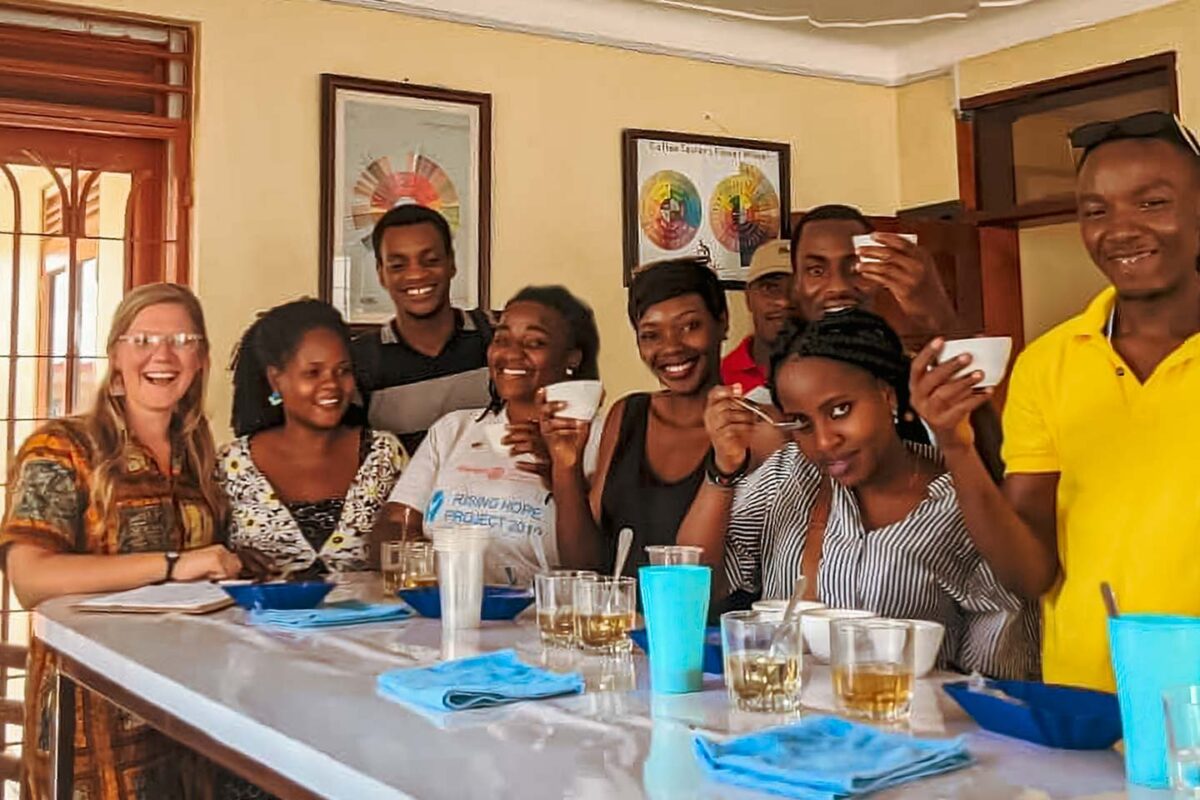
Nico also finds working at Mountain Harvest to be a fulfilling experience. She works alongside Kenneth to encourage Ugandans to take part in barista competitions and cupping contests and provides them with the necessary training. Mountain Harvest also has an open space for anyone interested in learning and improving their craft, believing that if others succeed, they, too, will be elevated.
“Everyone from the farmer to the dry mill staff to the processor want what’s best for their communities. They are definitely full of power and energy. With their talent and motivation, I believe they have the potential to be tomorrow’s leaders in the coffee industry. The only thing that’s in their way is a lack of opportunity.”

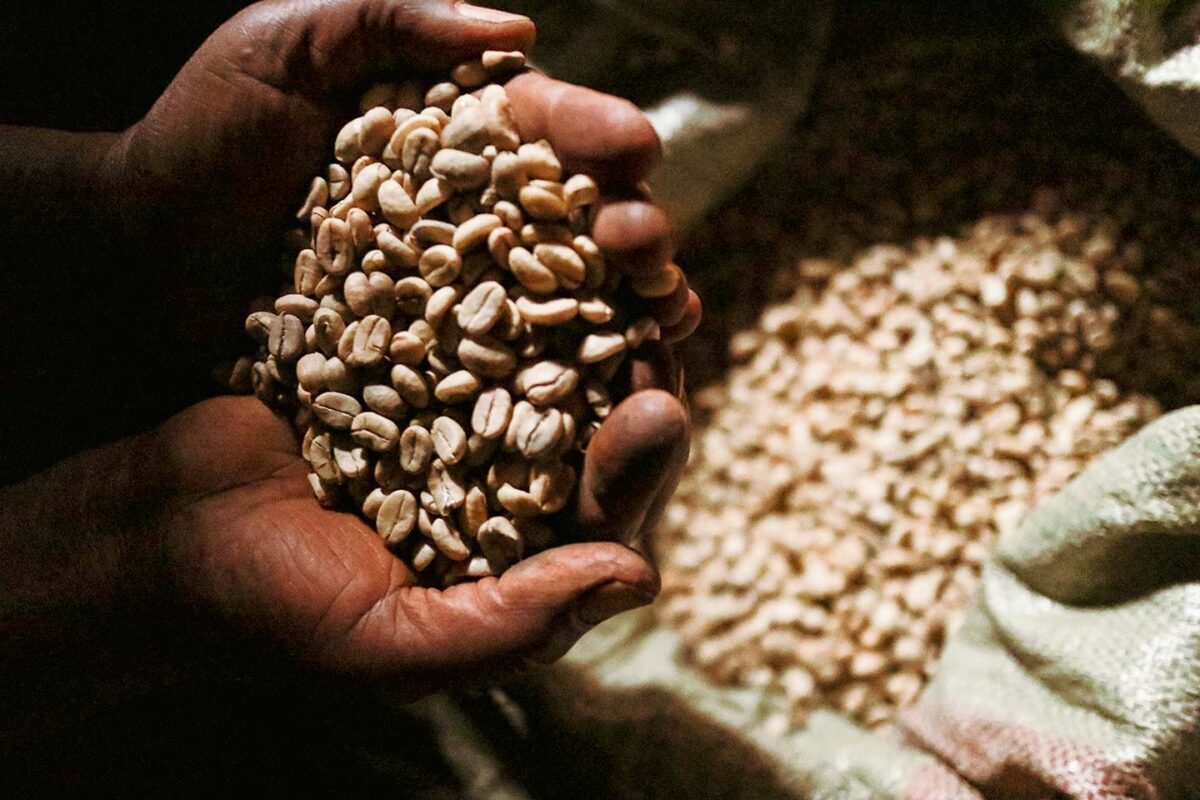
To stand out in coffee world
When Mountain Harvest was first starting out, Kenneth wanted to learn from domestic coffee companies about producing high-quality coffee. However, he was met with rejection, as he was seen as competition. In contrast, farmers in Colombia, Burundi, and Kenya welcomed him with open arms into their farms and facilities and shared their knowledge generously. Now, Kenneth follows their example by warmly welcoming visitors to Mountain Harvest.
“We don’t see ourselves as a coffee exporter. We see ourselves as a company challenging the status quo of coffee production in Uganda. We are willing to accept visitors and even competitors and say, ‘Please come and see how we are producing a coffee that scores 86.’ If we all can produce high-quality coffee, it means a better price for farmers. And together, we can change people’s perception of Ugandan coffee, too.”
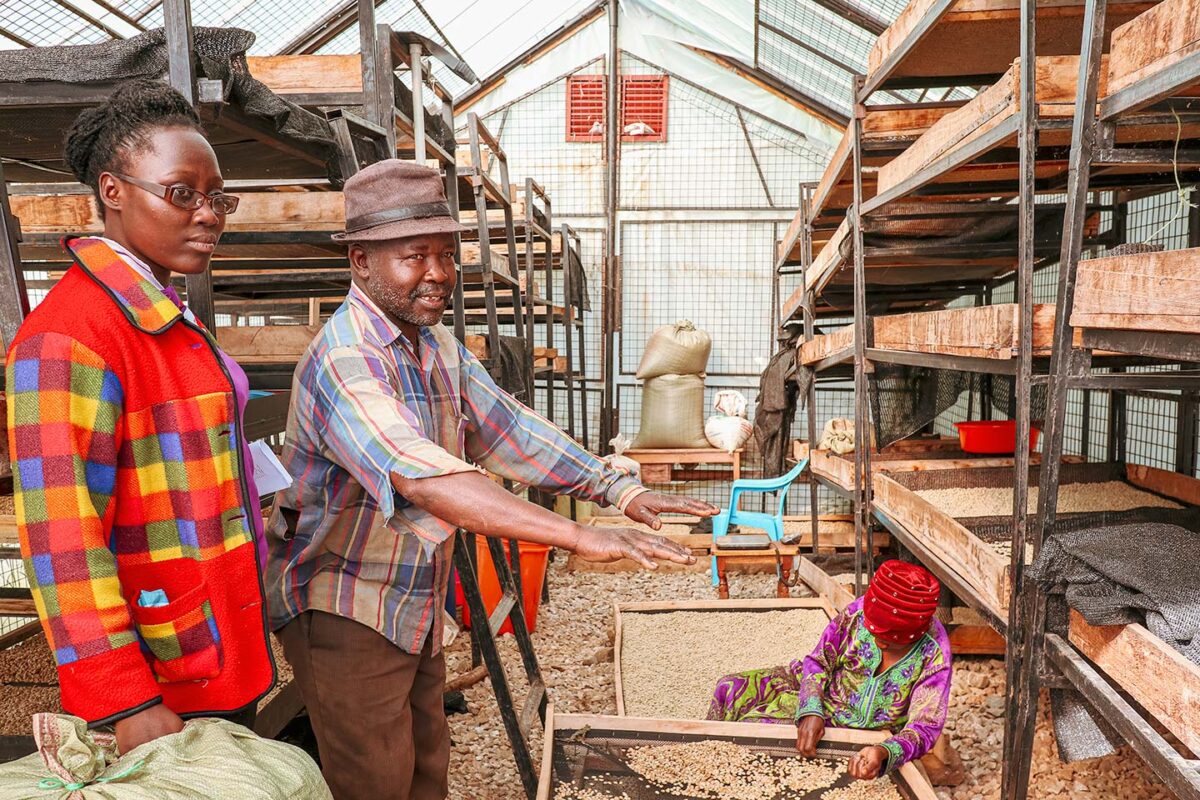
In the past five years, Mountain Harvest has gone from having to convince communities to work with them to receiving requests from communities to work together. But Mountain Harvest is selective about whom they partner with. If a product fails to meet their quality standards, they conduct a thorough analysis in front of the farmer to explain why. This approach enables farmers to identify their challenges and improve quality. Nonetheless, farmers who repeatedly make the same mistakes cannot supply to Mountain Harvest again. Consequently, the number of partner farmers has dropped from almost 2,000 at its peak to just 800 now.
“We are selective. We set our bar high because we aim for a level far above the poor quality that’s going around in the market. We want to work with people who are committed to putting in an effort to change.”
In the past, there was an around two-week period when Mountain Harvest had to halt coffee purchases to receive an organic audit. Despite this, the farmers did not sell their coffee to other companies and instead chose to wait for Mountain Harvest to resume operations.
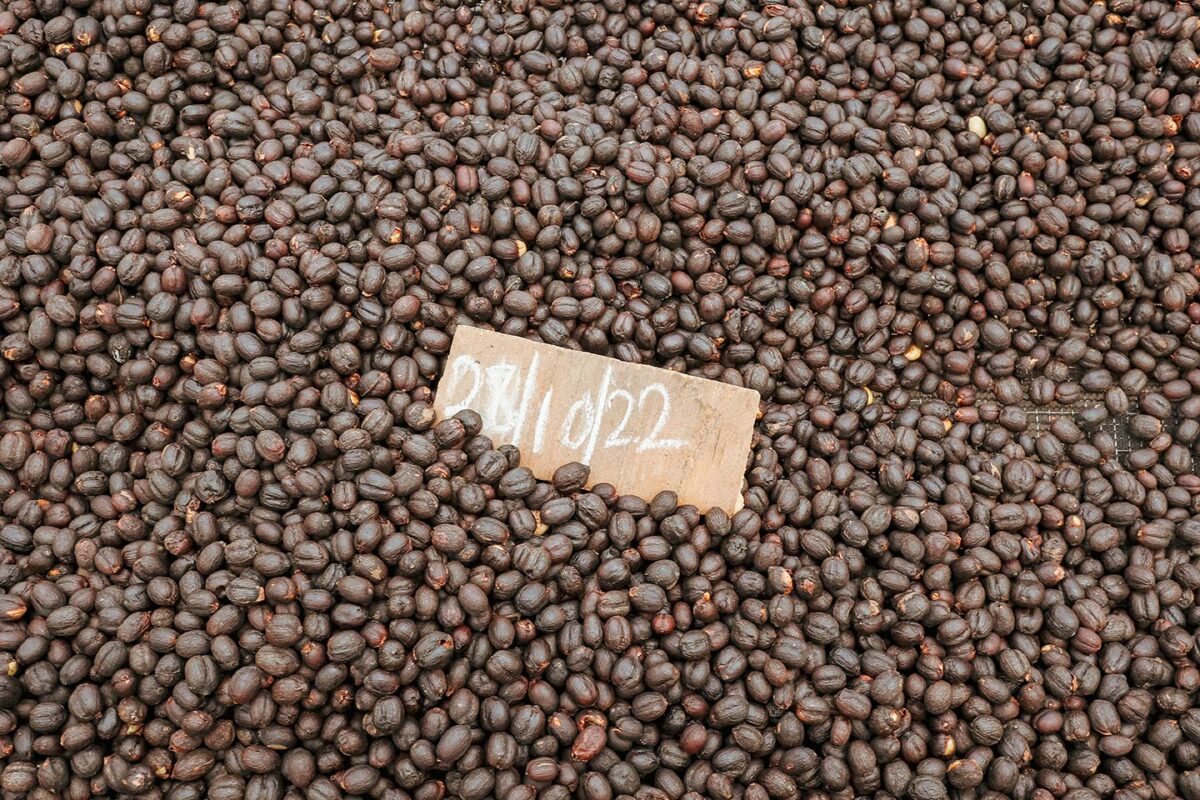
Kenneth: “Mountain Harvest purely exists for the farmers. Our goal for the moment is to raise a cupping score to 88. If we can do that, we can double the farmers’ income and give back to more communities. And after we succeed in Uganda, we want to go south and support smallholders in Tanzania. Because the country is not producing good coffee at a commercial level yet.”
Nico: “The farmers are starting to understand that their competitors are not their neighbors but farmers in Colombia, Kenya, and Ethiopia. Our ultimate goal is to make Uganda an origin of high-quality coffee and help people in producing countries become the leaders of the coffee industry.”
Text: Takuya Takemoto
